Your Clinic
SET A LOCATION
Your Clinic
SET A LOCATION
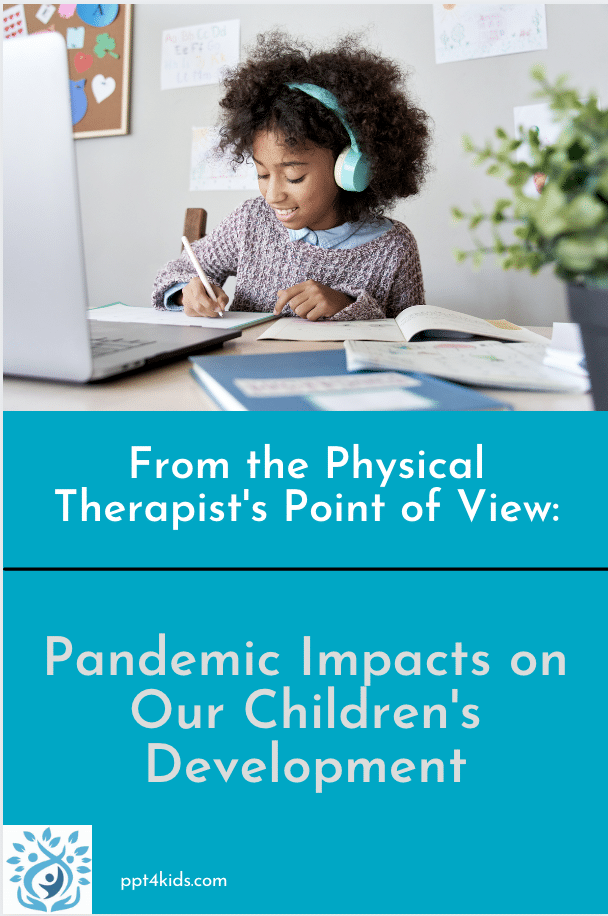
The reality of the onset of COVID-19 had placed all of us in impossible situations causing us to make decisions we never imagined ourselves having to make. For parents, this has been an especially difficult change. Parents are not only balancing working from home (or still leaving for the office every day) but are now acting as teachers, therapists, and daycare workers- what a balancing act! Children too, of all ages, are affected by these changes in routine. School-aged children have adapted to “remote learning” and younger children are attending daycare less frequently (or not at all) and/or are presented with less opportunities to engage with their peers.
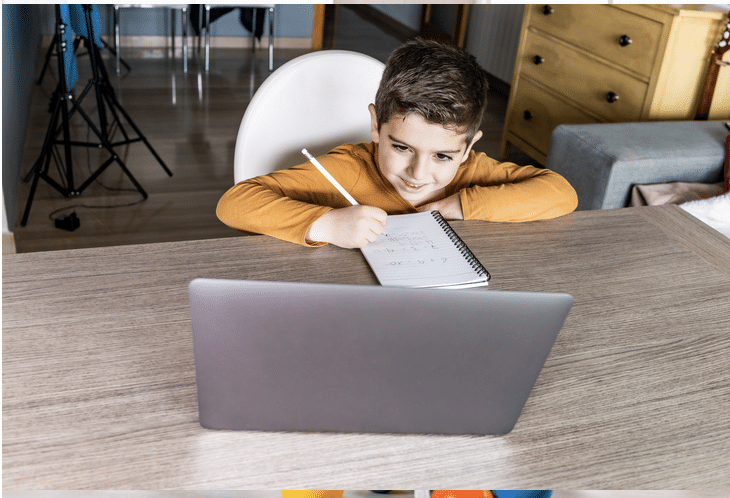
Parents have been given the difficult task of keeping their children safe during the pandemic. No decision is the wrong decision when prioritizing the safety of your child, your family and yourself. We all have different options to consider and different experiences that are playing a role in the decisions we have and will continue to make.
“ No decision is the wrong decision when prioritizing the safety of your child, your family and yourself.” – Megan Sliski, PT, DPT
From a physical therapy perspective, the changes that have become inevitable as a result of the pandemic are noticeably affecting gross motor development in children and adolescents. With the necessity of remote learning for an extended period of time, children and adolescents are experiencing more screen time which means an increase in sitting , a decrease in standing, walking, and running and an increase in poor postural positioning.
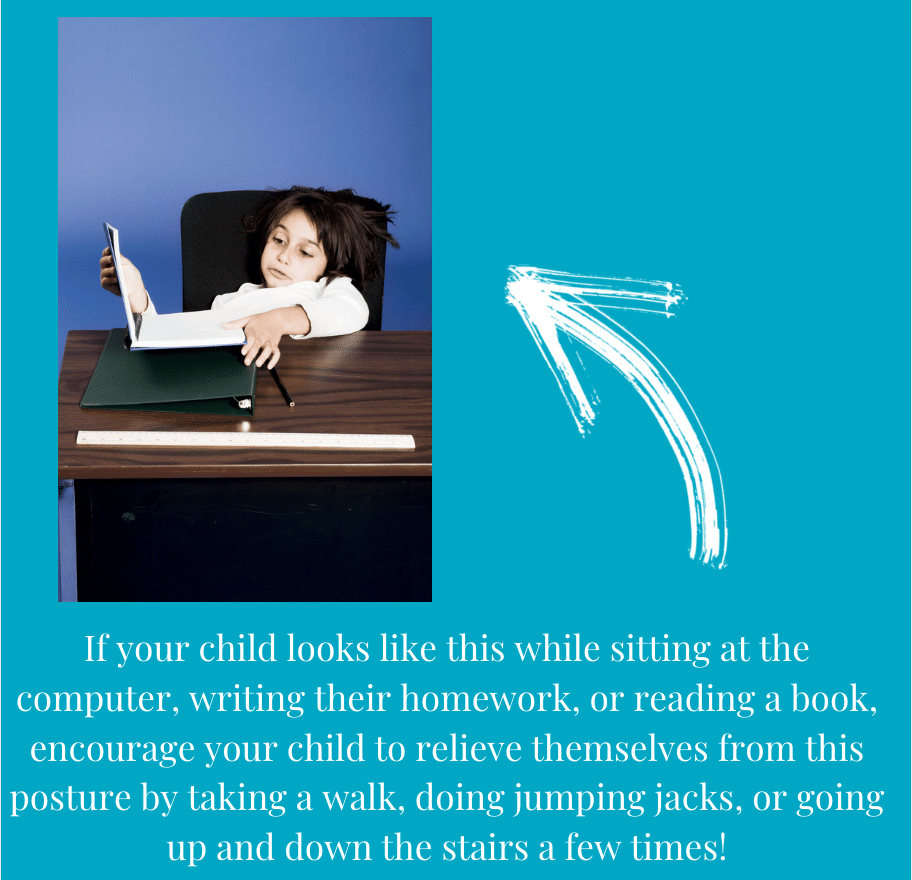
Although the presence of remote learning is slowly decreasing in schools throughout the state (and country) it is still utilized by many families and school districts and the effects of this change are continuing to be seen long term. To be clear, I am by no means discouraging or discrediting the decision of schools and families to participate in remote learning. It is a safe and effective option given the conditions of the pandemic. I am simply stating challenges that have emerged from a gross motor perspective with solutions that may assist and improve the quality of movement in the lives of your children.

Children grow from conception to around the time of puberty. Within this window, the body is making constant adjustments on a chemical and physical level to meet its needs to allow for success with growth. The adult human skeleton is made up of 206 bones. We have long bones, short bones, irregular bones, and flat bones. Bones regenerate themselves by creating new bone cells to replace old bone cells. This process is done with help from a concept called “weight-bearing”. To replace the old cells with new cells, the bones need forces placed on them. More force or movement on the bones is considered an increase in weight bearing. As muscles pull on the bones during movement, the force is created to drive this process. This process takes place in children and adults alike, however, in a growing body, we want to ensure that these bones are receiving enough weight bearing forces to contribute to a healthy growth process. Movement including walking, running, jumping, climbing, etc. are all opportunities for this process to thrive. Unfortunately, many of these activities are not occurring in our children due to closing of playgrounds, lack of team/intramural sports, increased screen time, and an overall decrease in motivation by children and adults due to the psychological impacts of the pandemic, resulting in less weight bearing than what is necessary.
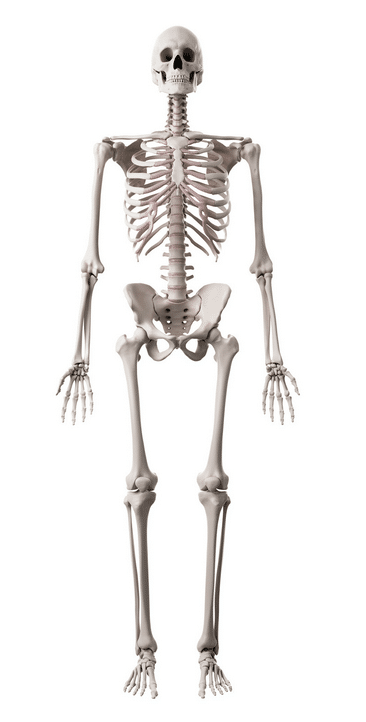
Did you know that the human skeleton is made up of 206 bones?
An increase in screen time and lack of play is also contributing to an increase in poor posture . When sitting at a table and staring at the screen of a computer, tablet, or phone for long periods of time, we (children and adults) have a tendency to assume a “forward head position”, which includes forward rounded shoulders that can result in tight pectoral muscles and weak scapular muscles and an extended neck that results in tight neck extensor muscles and weak neck flexor muscles. These positions can cause pain, tingling, and loss of range of motion if a person does not walk around, move, or switch positions often. Lack of appropriate support when typing on a keyboard or using a mouse may also cause similar symptoms resulting in pain, numbness or tingling in the arms or hands. Take a look at the chair- are your child’s feet touching the ground? Does the chair have arms rests? Does the chair provide lumbar sport? These positions affect adults and children similarly and the considerations listed above all play a role in postural changes we are seeing in children and adolescents.
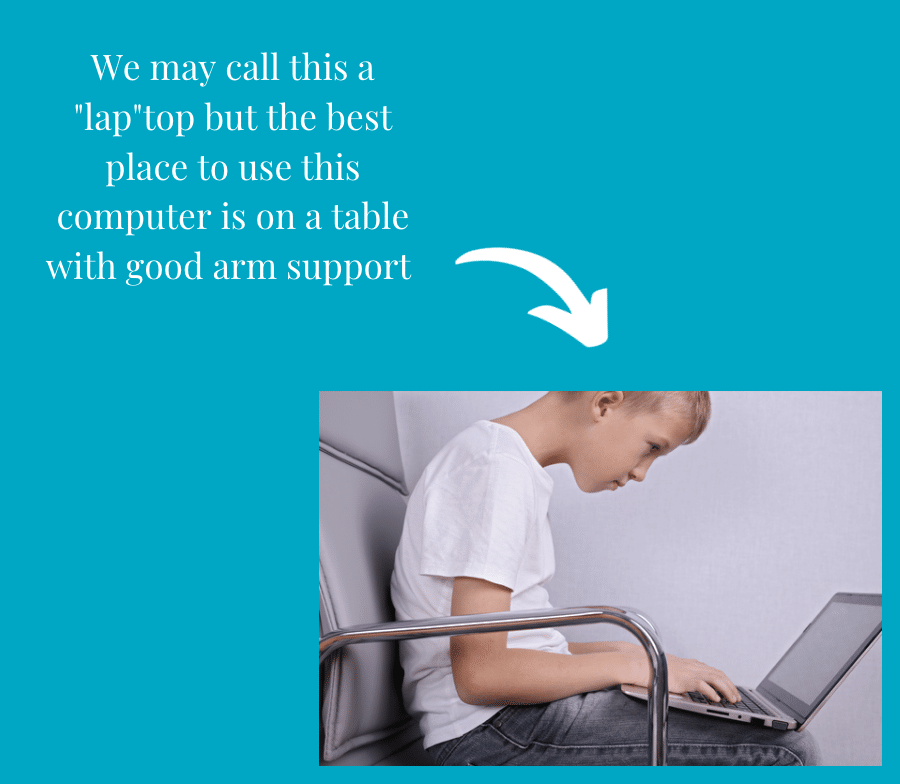
If you are noticing any changes in your child’s activity levels, performance in gross motor activities (including a decrease in endurance), or postural changes, please know that this is not your fault. This is simply a consequence of the situation we have all been placed in during this pandemic. If anything listed above sounds familiar or if you are struggling to correct what you’re seeing at home, please know that it is not too late to ask for help. Our physical therapists can support and guide you in life-long exercises and information that will sustain endurance, gross motor performance, and help provide postural correction for your child. Please call to a schedule an evaluation or free consultation and we will help you through this process, one step at a time.
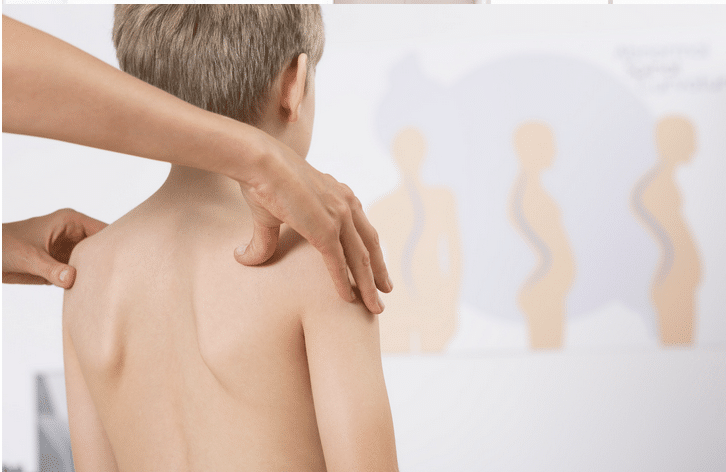
For more specific information regarding proper positioning and ergonomic support, please click here to see our previous blog post, “Don’t Let School from Home be a Pain in the Neck” with recommendations for good posture and positioning when participating in virtual learning.
The post From the Physical Therapist’s Point of View: Pandemic Impacts on Our Children’s Development appeared first on PPT4Kids.



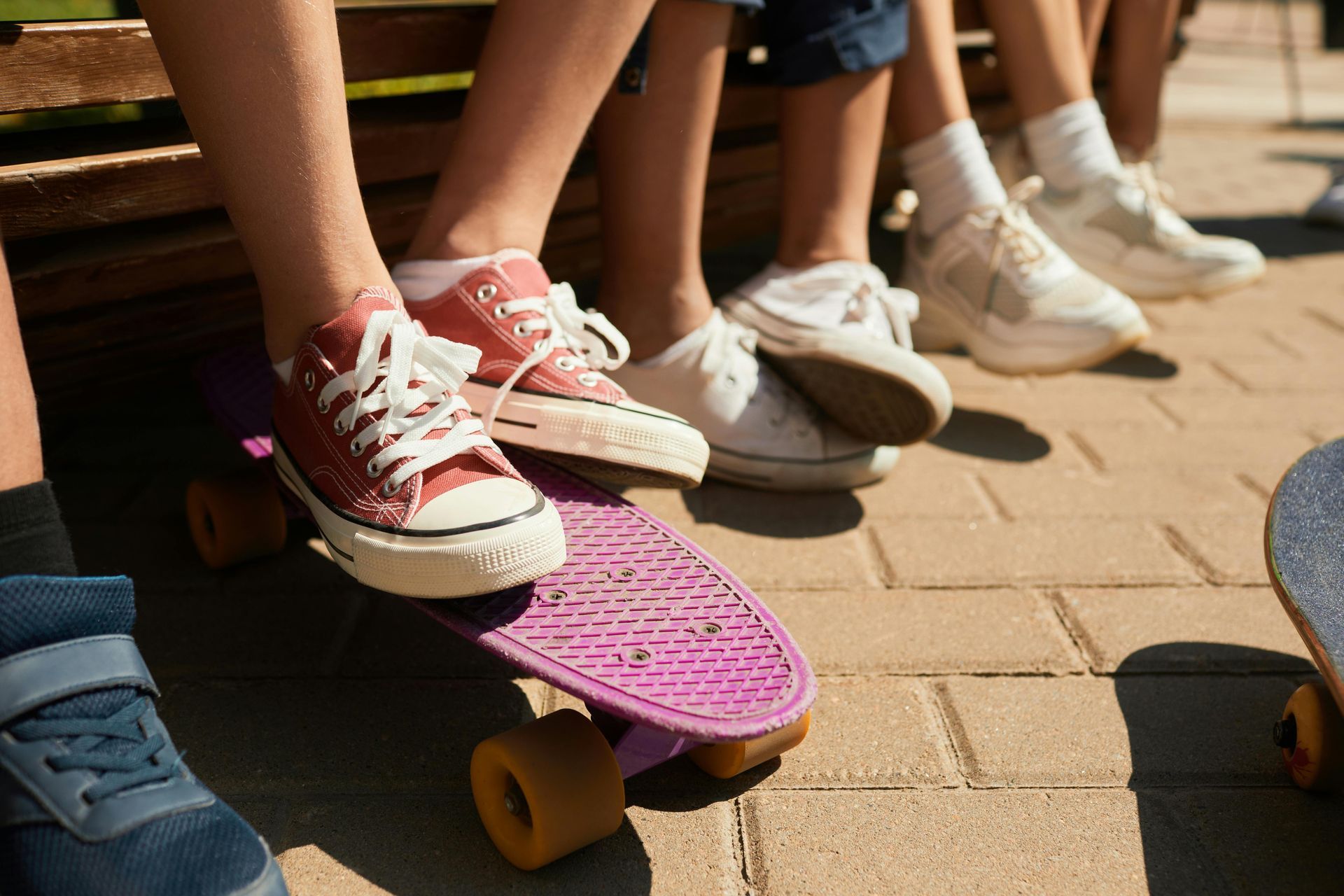


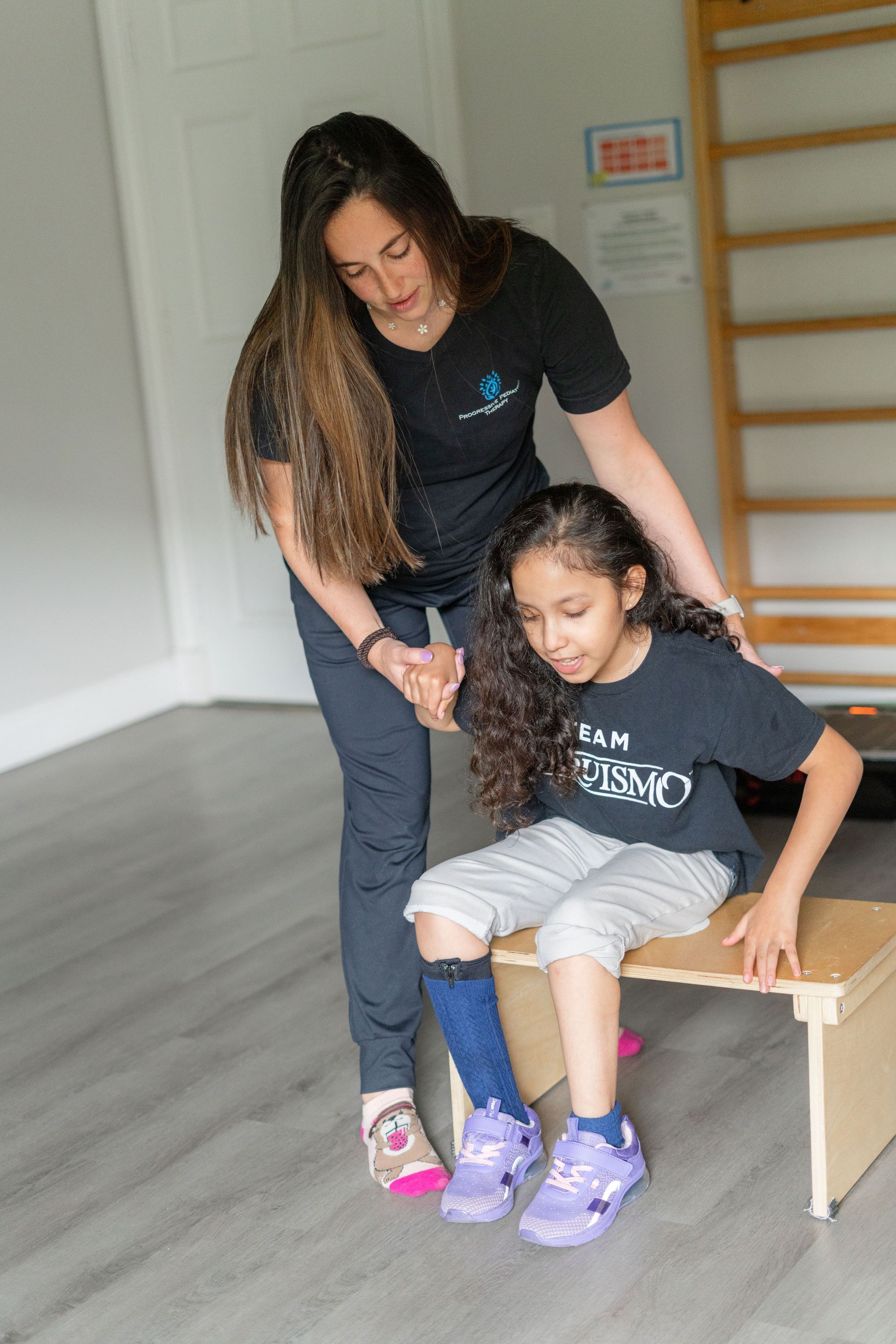
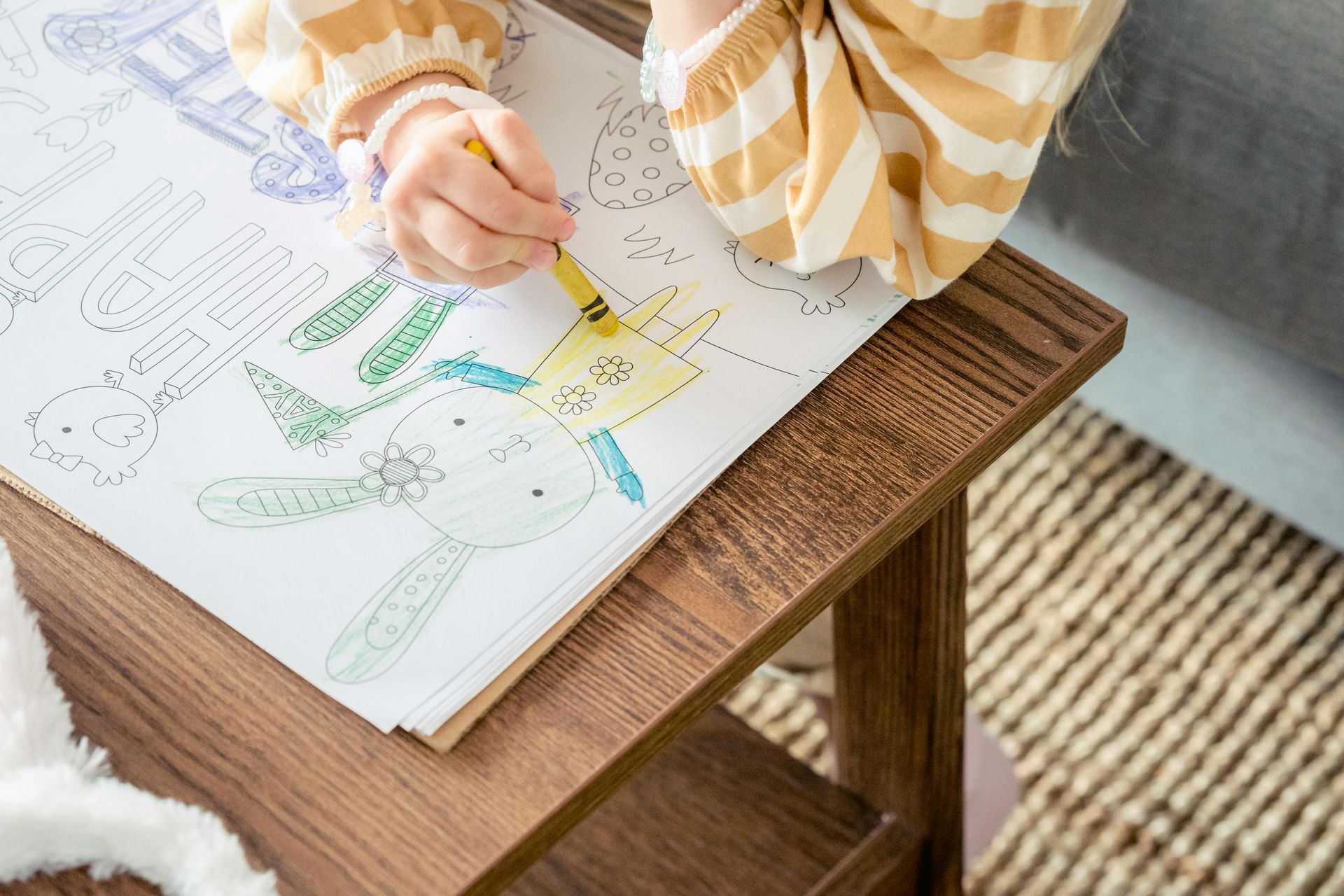
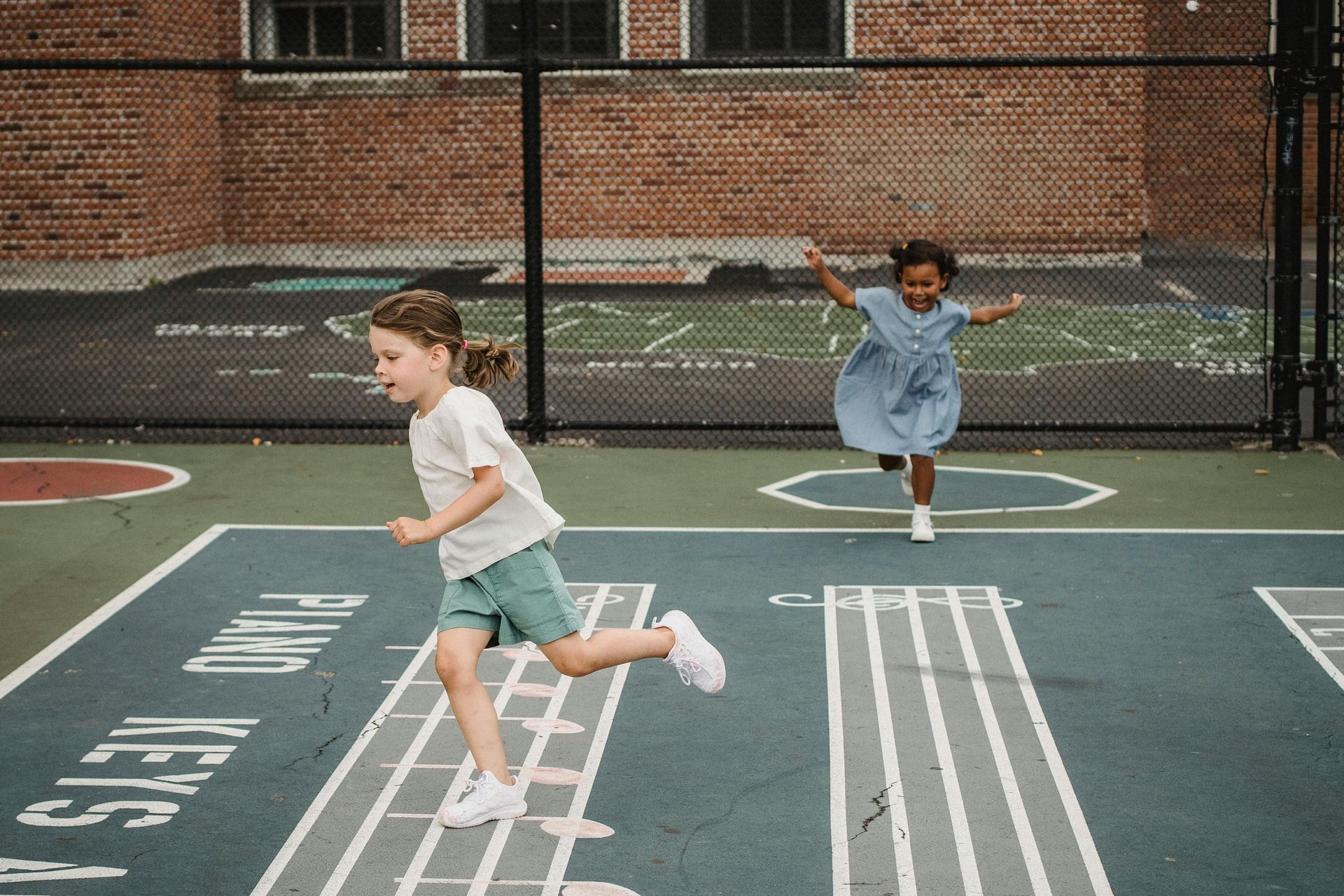
We empower children, families, and the community to learn, grow, and celebrate every child's unique abilities.
Quick Links
Contact Details
Phone: 561-376-2573 | 561-918-0190
Fax: 561-218-4939
VIP Concierge: 561-717-1764
Clinic Locations
All Rights Reserved | Progressive Pediatric Therapy, Inc. | Privacy Policy | Terms of Service
Site by Spearlance